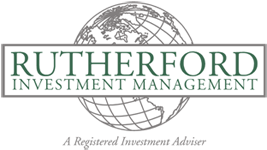Published December 10, 2018

Not to be outdone, U.S credit markets have suffered their worst year since 2008, as investors shed corporate debt. What brought us to this point? Can the mistakes be rectified?
The first policy mistake was by the Federal Reserve. After record low interest rates for a very long time, the Federal Reserve has been on a rate hike trajectory. Ever cautious, Janet Yellen was on a very slow, deliberate, rate-rising schedule. The market did not question the need to raise rates. However, President Trump decided to replace Yellen, reportedly because she was too short at five feet, two inches.
The president handpicked Jerome Powell as his chairman. Powell had a different idea on rate increases; he wanted more and faster increases. The market absorbed this news at first, but when Powell announced in September that rates were not near normal – i.e., not high enough, the market broke. The S&P dropped 6.8 percent for the month. Trump, who has extremely high disapproval ratings, has been able to count on a strong economy to buoy his presidency. Now, with the economy threatened, the president eviscerated his own appointee.
The Federal Reserve has been considered independent since its inception over 100 years ago. Whether Powell listened to his president or to the market, he softened his tone toward the end of November, prompting a 600-point single-day rise for the Dow. It remains to be seen if the damage can be repaired.
The second policy mistake is the trade war. President Trump famously announced that “trade wars are easy to win” and cheerfully began trade wars with almost all of our trading partners, particularly with China – the world’s second largest economy. The ripples crossed the globe, sending long-standing agreements and policies to the dust bin and adding uncertainty to worldwide economic performance.
Readers of this column will know that the markets hate uncertainty. This too was a load too heavy for the markets to bear. As the talk of increased tariffs spread, the markets reacted negatively. Whenever it appeared that tariffs might not be imposed, the markets rallied. Investors got whiplash from all the volatility. After attacking the two other signatories to the North American Free Trade Agreement, President Trump got the agreement renamed and hailed it as a great victory. Yet more automobiles will now be manufactured in Mexico, and while Canada must allow American dairy farmers to sell 0.03 percent more milk to Canada, Canadian consumers refuse to buy American milk.
The trade conflict headed toward a showdown with China. Two heavyweights scheduled a bout at the “G20” meeting in Argentina. There, in front of a crowd of witnesses, the titans slugged it out. The result? The U.S. would delay tariffs, and China would buy more stuff, without specification of how much or what that stuff was. The president hailed it as one of the greatest trade deals ever. It was a whiff. The U.S. blinked. When the market had an opportunity to review the “deal,” it didn’t like what it saw and the Dow dropped almost 800 points.
Another policy accident in the making is in the corporate credit markets. Investment-grade corporate bond funds suffered an outflow of $2.5 billion in the week ending Nov. 30 alone, and outflows of $34 billion from long-term bonds to shorter-term bonds in the same period. Bond spreads increased, and concern rose over bond issuers’ ability to repay their bonds. How did this happen? Well, among other things, President Trump wanted the price of oil to drop. He pressured his Saudi friends to pump more oil. So, to repay Trump for the pass he gave to the crown prince over the murder of a U.S citizen in a Saudi embassy, the Saudis complied. With the price of oil falling sharply, it became worrisome that U.S. oil producers could pay off the prodigious debt they had incurred while prices were higher. It remains to be seen how this plays out, but it is worrisome.
These mistakes can be corrected, but it will take political will to do so. The lodestar is the economy and the extent to which the Trump presidency depends on it for his political future.
“In times like these, it is good to remember there will always be times like these.” – Will Rogers
William Rutherford is the founder and portfolio manager of Portland-based Rutherford Investment Management. Contact him at 888-755-6546 or wrutherford@rutherfordinvestment.com. Information herein is from sources believed to be reliable, but accuracy and completeness cannot be guaranteed. Investment involves risk and may result in losses.
